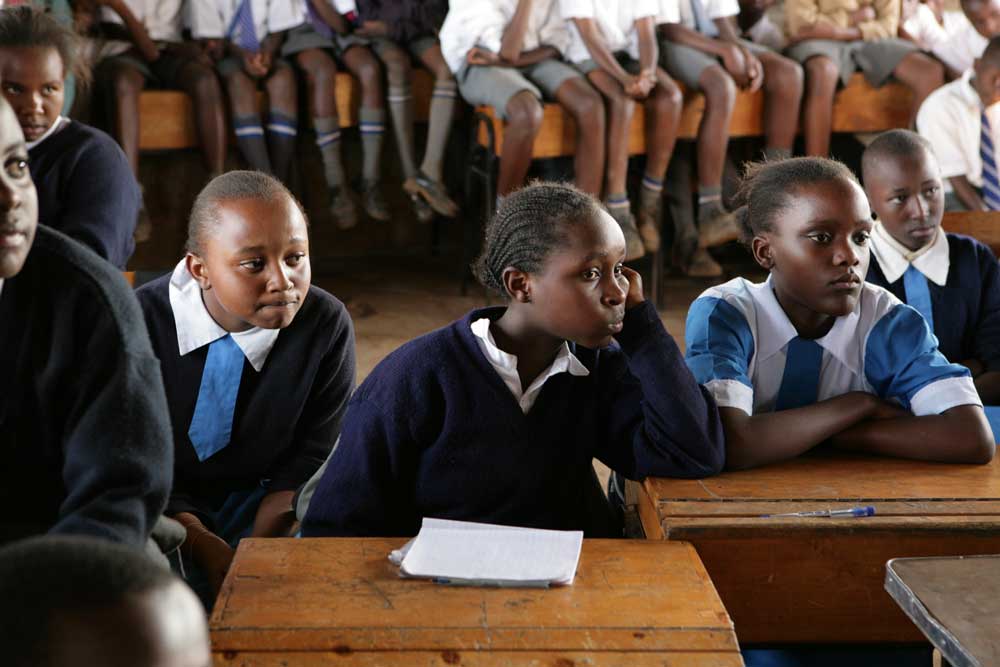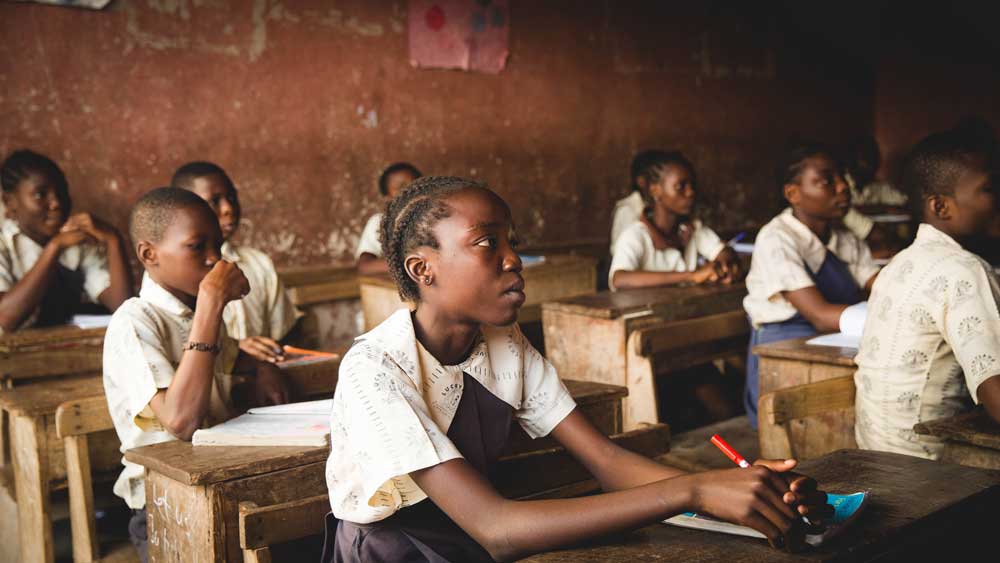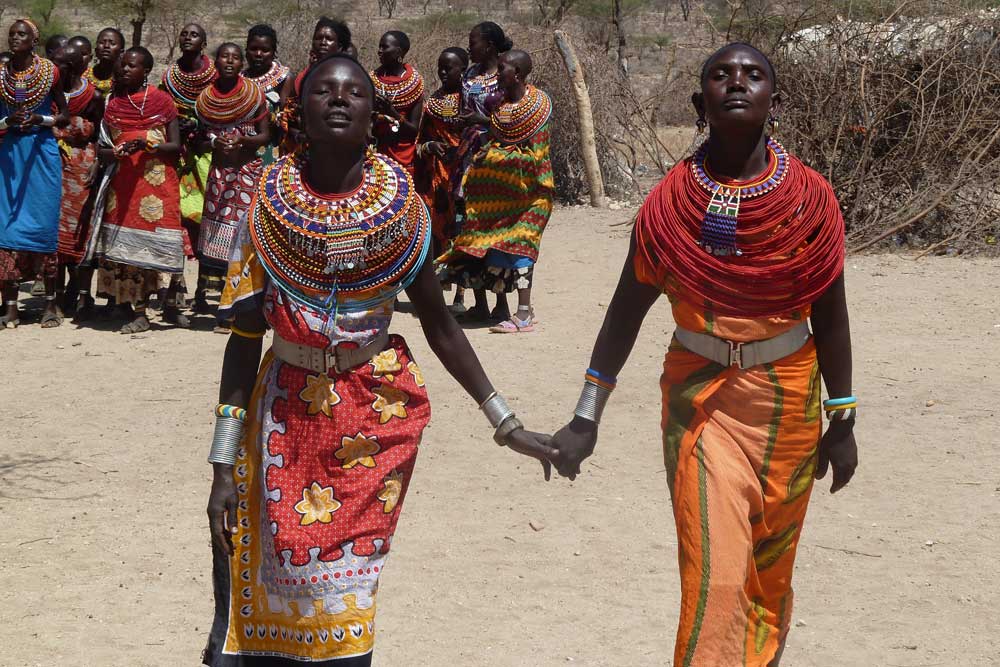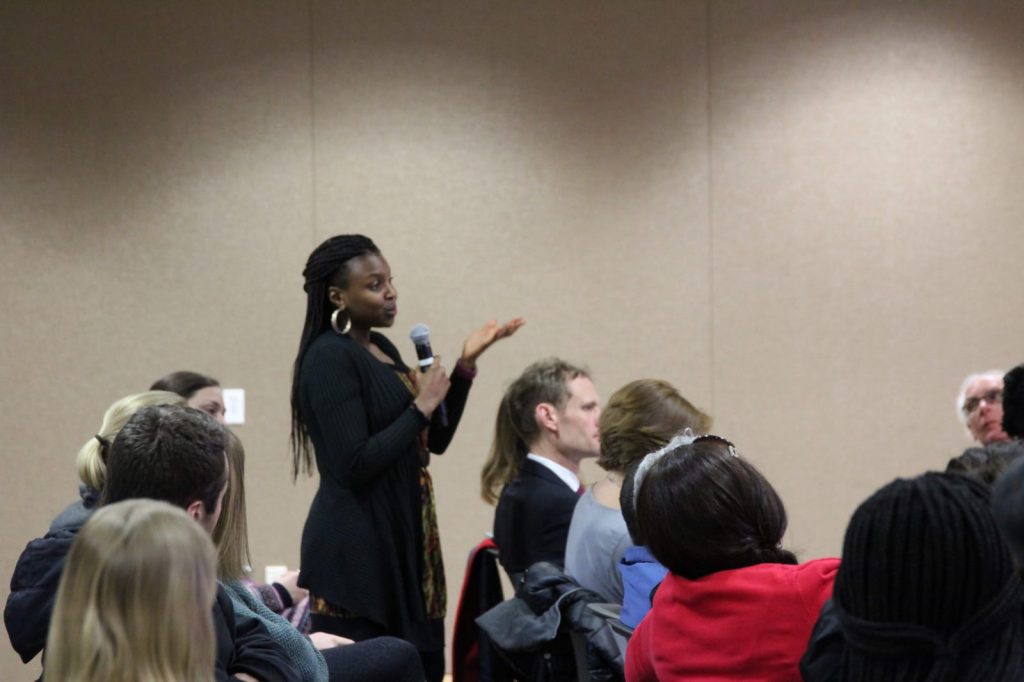Kenya Should Adopt Comprehensive Sexuality Education to Address the Vulnerability of Girls to Early Pregnancies

Prudence Mutiso, Human Rights Lawyer
In Kenya, thousands of girls below the age of eighteen drop out of school every year due to pregnancies. Experts have predicted an increase in this number due to COVID-19 pandemic school closures. As Kenya continues to respond to the pandemic, it should prioritize and address the urgent need for comprehensive sexuality education in schools to reduce teenage pregnancies and protect the rights of children.
A Spike in Pregnancies Amidst COVID-19
Even before the pandemic, Kenya’s 11 million adolescents already faced severe challenges. The challenges adversely affected their sexual and reproductive health, with ripple effects on their education and socio-economic prospects. It is this segment of the population that is particularly vulnerable to experiencing gender-based violence and early pregnancies. In a report released in March 2020, the United Nations Population Fund (UNFPA) reported that nearly 378,400 adolescent girls in Kenya ages ten through nineteen years, became pregnant between July 2016 and June 2017. Multiple reports show that COVID-19 has exacerbated the vulnerability of these same adolescents, especially girls, to sexual violence.
In March 2020, Uhuru Kenyatta, Kenya’s president, ordered the immediate closure of all schools upon confirmation of the first few cases of the Coronavirus in the country. The closure meant extended periods at home for millions of school-aged children. In July 2020, the government extended the school closure until January 2021. A report released on June 16, the International Day of the African Child, estimated that over 150,000 underage girls became pregnant in the first three months of the government lockdown. The report identified Machakos County as particularly affected, with almost 4,000 pregnancies. The Department of Children’s Services (DCS) in Machakos confirmed the statistics as recorded in all County hospitals. While state and non-state agencies have disputed the precise statistics, there has nevertheless been an alarming number of adolescent pregnancies. Compared to the first half of 2019, reports indicate a 40% increase in the monthly average of adolescent pregnancies in 2020. According to UN Agencies, COVID-19 economic, social and educational disruptions could lead to seven million unintended pregnancies in low and middle-income countries like Kenya.
In addition to increased incidences of teenage pregnancy, criminal justice actors have also acknowledged the spike in sexual and gender-based violence cases during the pandemic. Confirming the rise, Kenya’s National Council of Administration of Justice reported that between March and April 2020, 41% of the cases reported involved defilement and rape. A correlation between the targeted measures imposed by the government to curb the spread of coronavirus. As confirmed by the Machakos County DCS, most teenage pregnancies occurred as a result of sexual violence perpetrated by close family members. Other causes of adolescent pregnancies include child marriage, lack of awareness of sexual and reproductive health rights, and limited access to education. Additionally, limited economic opportunities for guardians place children at the risk of sexual exploitation.
Unsatisfactory Responses
Upon publication of the report on the teenage pregnancies, Kenyan government officials and religious institutions called on adolescents to abstain from sexual activity. Speaking on adolescent pregnancies, the Education Secretary Professor George Magogha blamed adult and mature content for the rising cases. Further, the Kenyan Catholic bishops warned against the introduction of comprehensive sexuality education (CSED) in schools and the legalization of abortion to curb teenage pregnancies. In the past, other government agencies have proposed reducing the age of consent from eighteen to sixteen years old. The proposal stems from the argument that teenagers have already attained the age of discretion, and young men suffer the legal consequences of engaging in sexual relations with teenagers. Therefore, reducing the age of consent from eighteen to sixteen would only artificially decrease teenage pregnancy rates. In essence, it would change little on the ground for adolescents at risk.
Comprehensive Sexuality Education
Comprehensive sexuality education is a rights-based and gender-focused approach to sexuality education, whether in or out of school. The curricula on the internationally recognized CSED spans several school years and provides age-appropriate information consistent with the developing capacities of young people. CSED includes scientifically accurate information about human development, anatomy, and reproductive health, as well as information about contraception, childbirth, and sexually transmitted infections. CSED programs help young people to build essential life skills through critical thinking, clear communication, responsible decision-making, and respectful behavior. CSED targets out-of-school adolescents through the provision of community-based education and training. In 2015, Kenya developed a national policy on adolescent sexual and reproductive health, which included comprehensive sexuality and reproductive health education within the health sector, but not in the school curricula. Still, the government has reported slow progress in the implementation of the policy.
As enshrined in the Kenyan Constitution, the Maputo Protocol, and the UN Convention on the Rights of the Child, teenage pregnancies limit children’s right to education and the right to health. Regarding the right to education, the UNFPA reports that 13,000 girls drop out of school every year due to teenage pregnancies, with 50% failing to transition into high school. On the right to health, teenage pregnancies increase the risk of maternal mortality due to unsafe abortions. Reports estimate that for every 100,000 unsafe abortions performed in Kenya, 266 women die. Without targeted interventions, the number of teenage pregnancies may likely increase, with dire consequences to girls. To curb the rise of teenage pregnancies, UNFPA recommends that governments adopt and implement comprehensive sexuality education in schools.
A Three-Point Plan

As the uncertainty of COVID-19 looms, many girls remain vulnerable to sexual and gender-based violence, teenage pregnancies, and sexually transmitted infections. To promote and protect the right to education and the right to health of children affected, currently, and post- pandemic, policymakers consider three key issues, as outlined below.
First, the government should include and implement CSED in the school curricula. According to the United Nations, comprehensive sexuality education reduces risky behavior among adolescents. Further, abstinence-only programs yield ineffective and inconclusive results. The Ministry of Health (MoH) and education (MoE) should consider accelerating the implementation of the policy and introducing CSED in the school curricula. As noted in sections 4(h) and (q) of Kenya’s Basic Education Act of 2013 the government recognizes basic education as encompassing child protection for survival and development, and encourages independent and critical thinking for reconstruction and development. As such, the implementation of comprehensive sexuality education would include the development of age-appropriate training guides for teachers, specialized training for the teachers by the MoH, and implementing CSED through ordinary school calendars and activities. Evidence shows that CSED promotes independent and critical thinking and that the lack of it severely hinders the development of children. Engaging parents in CSED is also essential. As children continue to stay at home, the introduction of CSED through e-learning platforms, where available, would also provide an opportunity for parents to discuss sexuality with their children. Adopting CSED could lead to a significant drop in adolescent pregnancies and eliminate the risk of unsafe abortions and sexually transmitted infections.
Second, the government should adopt and implement multi-sectoral and interagency coordination to provide targeted interventions such as child protection centers. The Machakos County scenario demonstrates the lack of interagency collaboration, where government agencies such as the DCS and the MoH reported different figures on adolescent pregnancies, and the MoE disputed the figures. Out of the 47 counties, Kenya has only four child protection centers in Kilifi, Nakuru, Garissa, and Busia counties. Working with various government agencies and development partners, child protection centers have successfully served as a one-stop source for information and education on issues pertaining to children and education. For example, since 2010, the center in Kilifi County has strengthened community linkages and experienced an increase in reporting of violations such as sexual violence, with over 27,000 children assisted and 51% of them being girls.
With Machakos County named as one of the counties with a high number of teenage pregnancies, the county would benefit significantly from having a child protection center. Investing in the child protection model across all counties would bring services closer and encourage reporting. The centers provide linkages with essential service providers such as the police, prosecution, judiciary, and health facilities, resulting in perpetrator accountability in sexual and gender-based violence (SGBV) cases.

Third, policymakers should reject proposals to reduce the age of consent from eighteen to sixteen years of age. In 2019, the Kenyan Court of Appeals proposed an amendment to lower the age of consent, citing lengthy jail terms imposed on young men convicted of defilement. The Judges acknowledged the challenges of maturity, morality, autonomy, safety and protection of children. They also acknowledge the need for proportionality. As evidence shows, the lack of comprehensive sexuality education leads to increased cases of early sexual relations among adolescents. While the debate on the age of consent continues, the challenges that the Judges pointed out are not new. Kenya can start to address these issues, at least in part with the introduction of CSED in schools. Lowering the age of consent would undermine and reverse the gains made to advance the best interests of the child principle, as stated in and Kenya’s legal and policy framework.
COVID-19 as an Opportunity
While Kenya has experienced a persistence in teenage pregnancies and SGBV, the pandemic has highlighted violations and brought national attention to the challenges thousands of girls face daily. The ongoing national discussion on teenage pregnancies and SGBV signifies a positive development. The pandemic has provided an opportunity for national leaders, county governments, and non-state actors to act and address the crisis seriously. As countries re-think strategies, due to the disruption caused by the COVID-19 pandemic, the Kenyan government has a chance to re-think its approach towards addressing teenage pregnancies and SGBV. Abstinence-only education cannot and should not be the solution to address adolescent pregnancies. The Kenyan government should not shift the blame. The state should take full responsibility for failing to meet its obligations to protect adolescents’ rights to education and health. The introduction of comprehensive sexuality education neither promises to stop teenage pregnancies, nor to end sexual and gender-based violence. However, it can significantly contribute to a reduction in both. We should empower adolescents to make appropriate choices and decisions and protect them from the consequences of childbearing at a young age. Adopting comprehensive sexuality education is a proven solution that leads to better health and education outcomes for adolescents.


